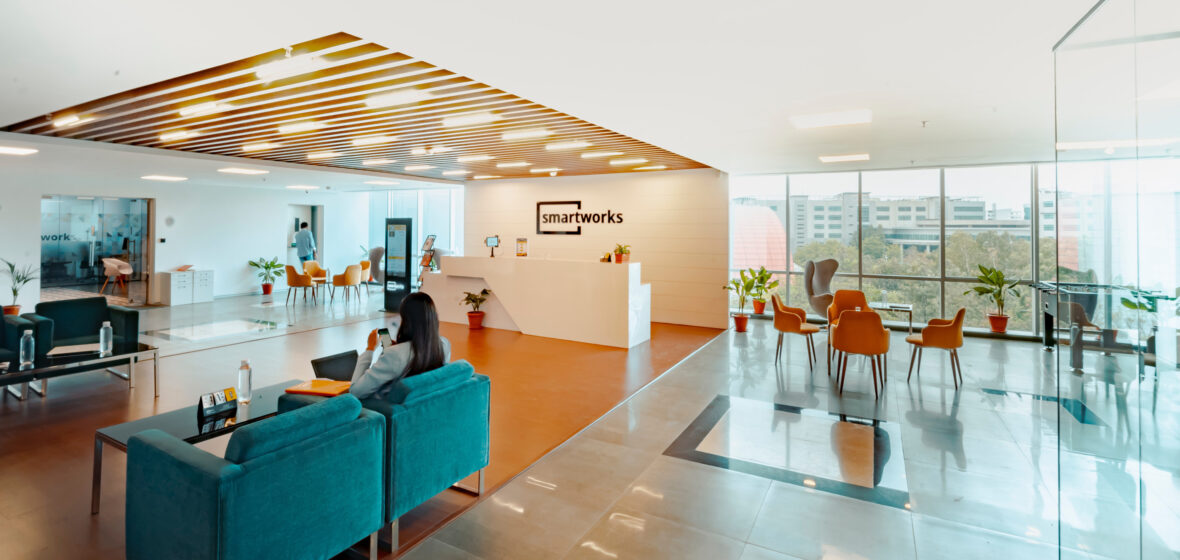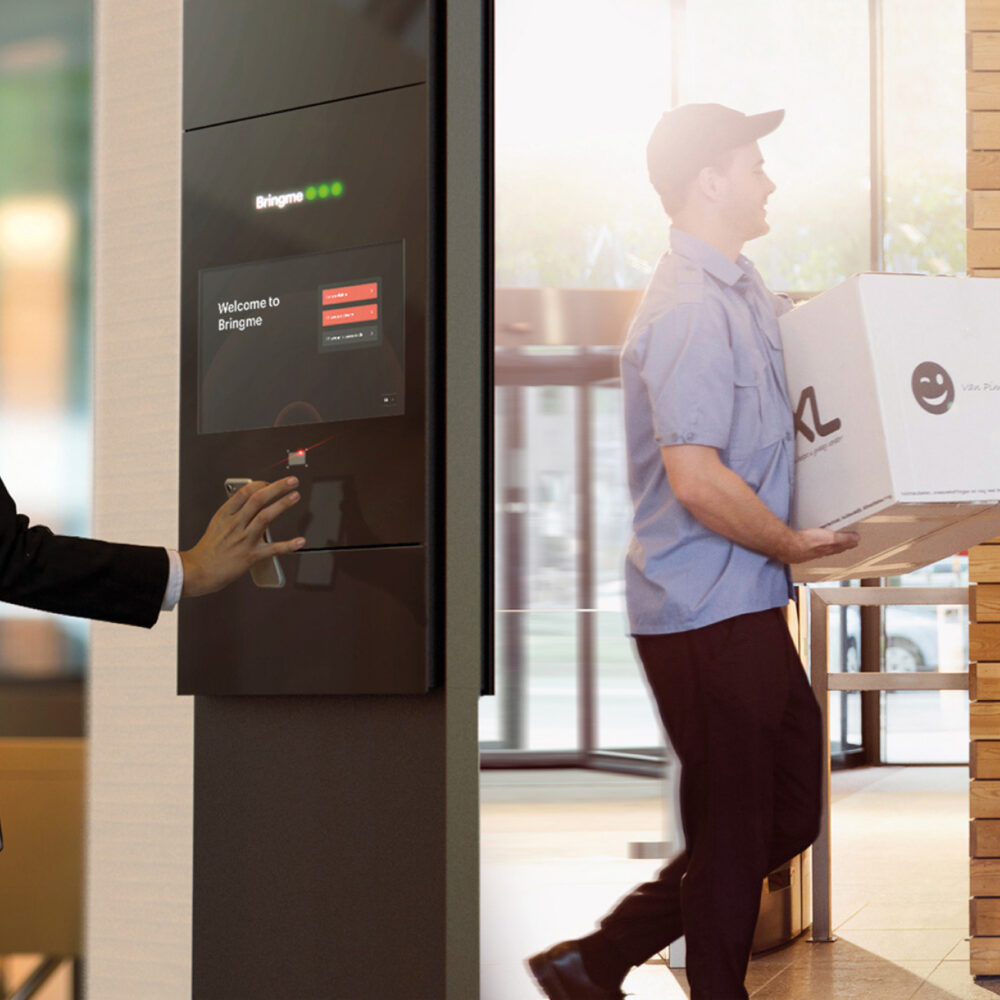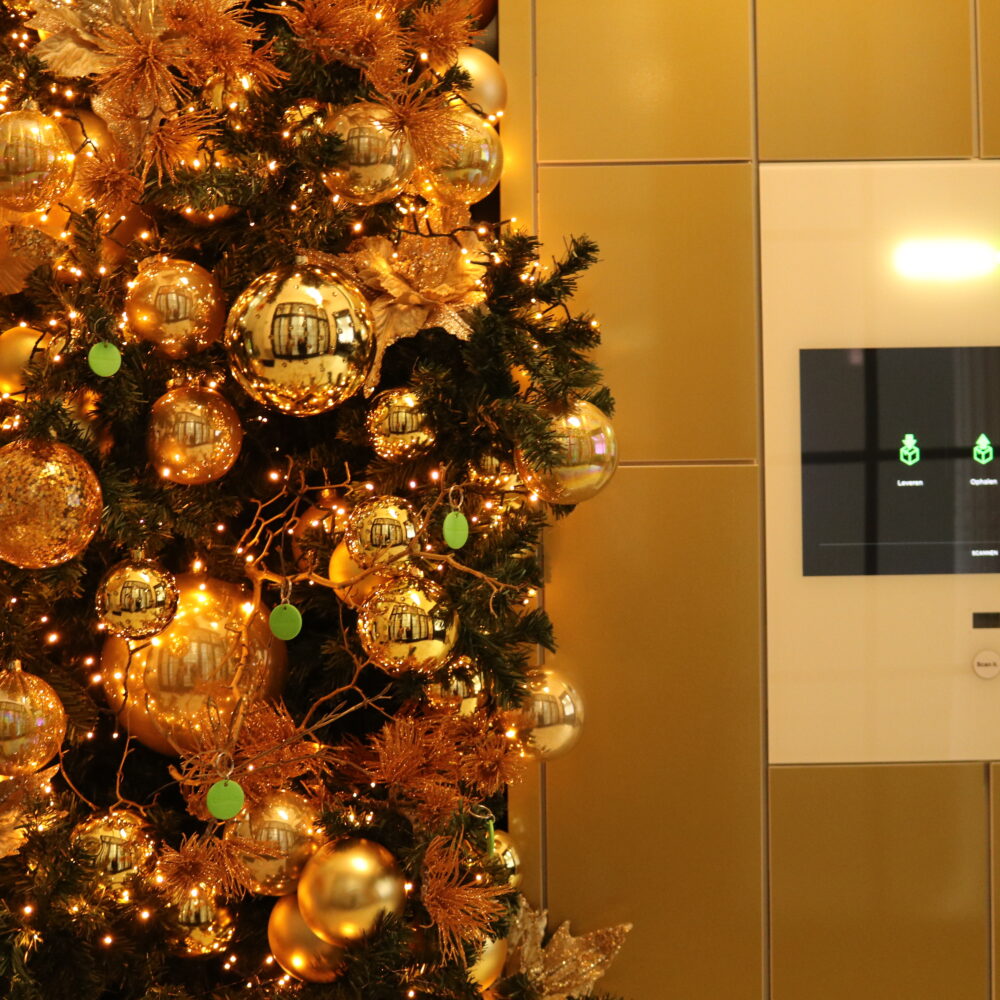Coworking spaces also transition to a digital reception
Companies that lease offices and coworking spaces are enhancing their efforts in terms of (cyber)security and digitalisation. Many of these companies are opting for a digital reception. What added value does this bring them? Why are business centres like Business Park Ieper and Park Office, as well as major players like NewFlex, choosing digital receptions?

A digital reception caters to the hybrid work culture
One significant change in the corporate world is the widespread adoption of hybrid working. People are now working more flexibly, sometimes in the office, sometimes from home. A digital reception addresses this shift. Couriers and unexpected visitors are automatically welcomed, and remote workers are kept informed. Additionally, colleagues can easily leave or store items for those not present in the office using the parcel locker. Remote workers receive notifications when something is ready for them, and they can collect it when they return to the office.
A digital reception offers more service for less cost
Unlike a reception staff member, a digital reception is available 24/7: never sick, never on holiday, and not limited by working hours. In other words, a digital reception can handle much more work than a human receptionist, at only a fraction of the cost of a ‘traditional’ receptionist. This cost-saving partly explains why coworking spaces choose this option. The money saved can increase their profitability. Some invest a portion of these savings into areas that truly make a market difference: creating a sense of community, organising social events for tenants, sharing knowledge and experience, and hosting themed training sessions.
By saving a significant amount of money with a digital reception, coworking spaces can invest in things that truly make a difference.
A good first impression with the digital reception
The idea that personal service requires a person at the reception desk is outdated. Today’s business leader is looking for other things: they expect the reception to operate professionally and innovatively. They want measures in place for (cyber)security, making it clear that they are taking their responsibilities seriously and that everyone is safe. This is now much more important than the smile of a receptionist.


